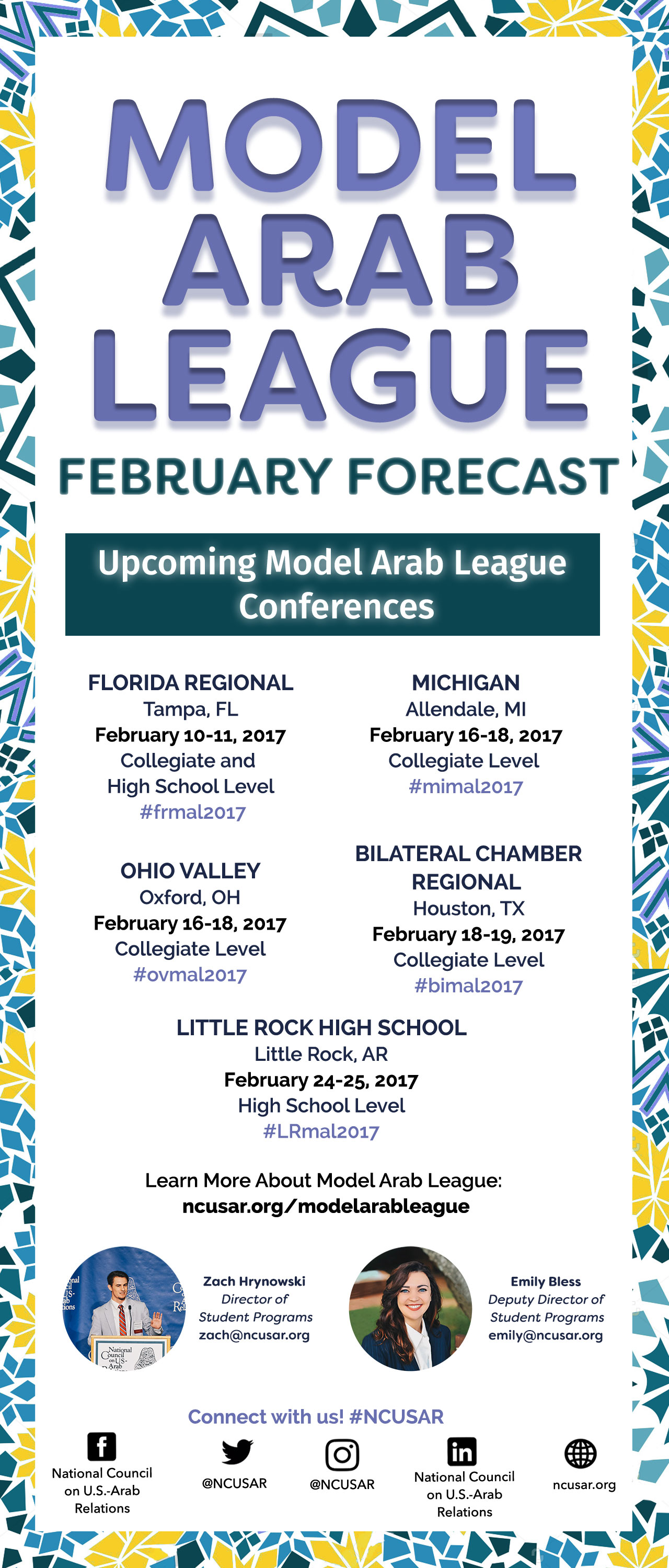
and

EVENT POSTPONEMENT – “Libya-U.S. Relations 2017”
Due to events and circumstances beyond the organizers’ and sponsors’ control, the conference on “Libya-U.S. Relations 2017: New Vision, Hope, and Opportunities,” originally scheduled for February 16, 2017, has been postponed.
As a result of Executive Order 13769 of January 27, 2017, which bans Libyan travelers from entering the United States, it will not be feasible for the full complement of speakers, sponsors, and guests to be in Washington, D.C., for the event as originally planned. In the interest of maximizing conference participants’ benefit in exploring current and future political, security, oil and gas, healthcare, and infrastructure investment issues in Libya – as well as the future of U.S.-Libya relations – a new date for the conference will be announced soon.
Thank you for your patience as the conference organizers and sponsors work to set a new date for the event. Many have recognized the importance of this conference and there appears to be political will to enable it to succeed. Conference organizers and sponsors hope to have an update on the conference status within the next two weeks.
If you have already registered for the conference, your registration will be applied to the new conference date. Refunds are available but individuals are encouraged to await developments regarding conference rescheduling before making a refund request.
Should you have any further questions, please contact Ms. Rihab Elhaj at relhaj@ncuslr.org or Dr. Hani Shennib at hshennib@mail.com.
















